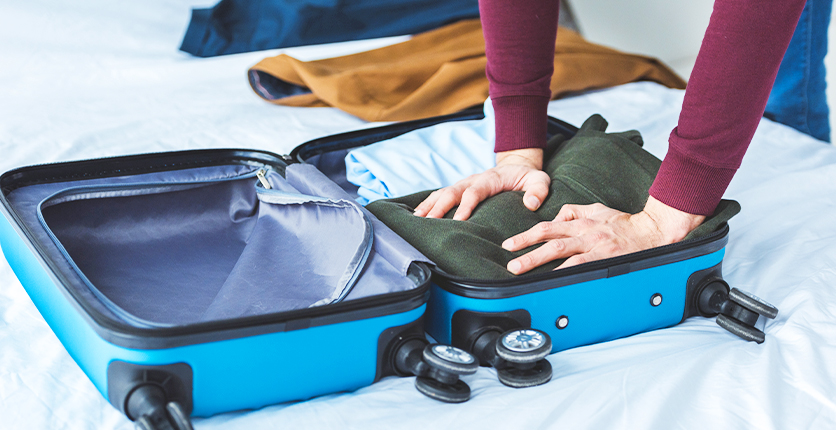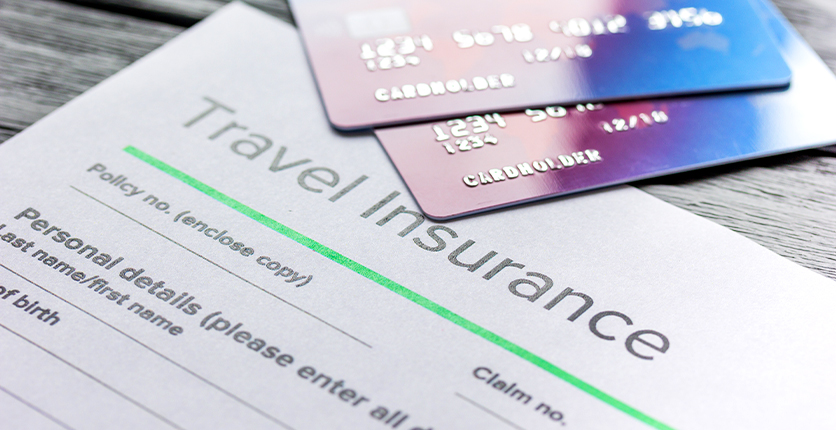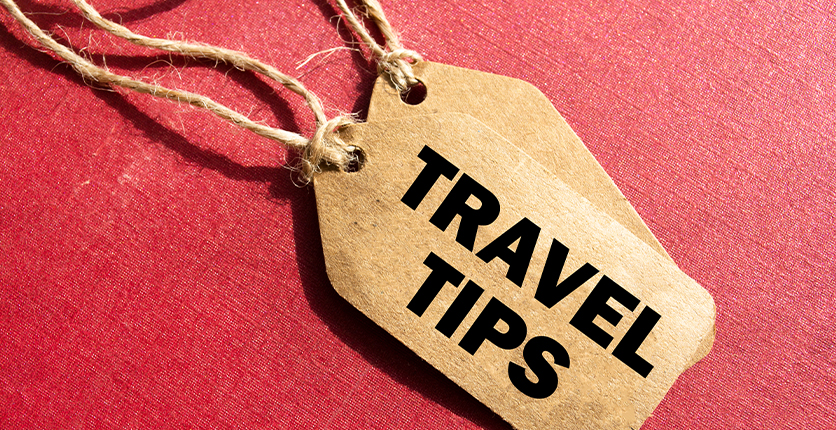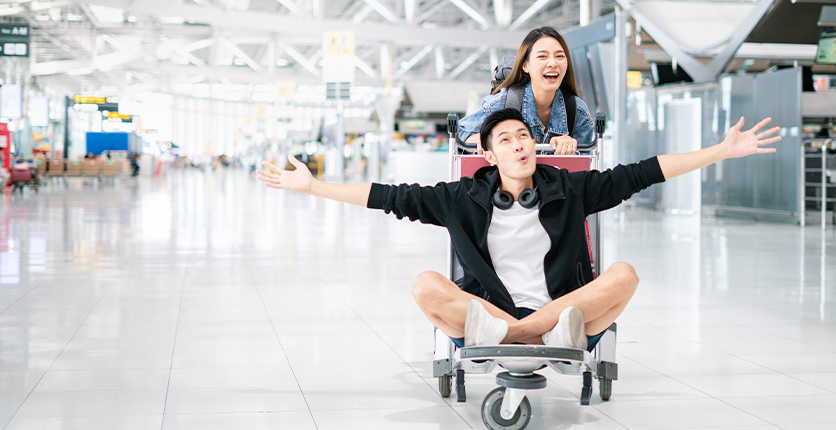The mid-year holiday season is here and, with almost all pandemic-related restrictions having been lifted around the world, there’s never been a better time to travel. Unfortunately, because more of us are “revenge travelling” – booking big trips to make up for travel time lost during the pandemic – we’re seeing high rates of travel inflation this year, with airfares, car rental and accommodation costing more than before the pandemic.
Fortunately, there are many ways to cut your travel expenses without missing out on the fun or adventure. Here are eight to start with; not forgetting the special perks for SAFRA members.
1. Don’t book your hotel room too early

A 2022 Nerd Wallet study, which analysed more than 2,500 hotel room rates from 2019 through the first half of 2021, found that booking a room 15 days in advance can save you up to 13% compared to booking four months ahead.
Of course, this probably doesn’t take into account peak periods such as major holidays. How much you save (or not) also depends on the destination you’re travelling to, since popular places that receive visitors year-round are less likely to have an “off-season”.
But, if you’re not someone who does things at the last minute, you can still save on accommodation by comparing rates across different sites, including the hotel’s own website, which may offer you a better deal for booking directly through them.
SAFRA members get a free 90-Day Tripbeat Premium Membership where you’ll receive up to 60% off stays at over 600,000 hotels worldwide, among other privileges, till 30 June 2023. Find out more at safra.sg/promotions/tripbeat
2. Book your flight early, preferably on a Sunday

According to online travel booking platform Klook, you’ll get the best airfare deals if you book your ticket three to six months in advance.
And the best day to make your booking is a Sunday, for a flight on a Thursday, says full-service online travel brand Expedia. It says you can get tickets for about 20% cheaper compared to booking on a Friday (the most expensive day), and save you up to 25% compared to flying on the most expensive day – Monday.
3. Pack light

An increasing number of airlines – even non-budget ones – now charge additional fees for extra carry-on or check-in luggage. It’s always cheaper to pay for those extra kilos when you book your ticket rather than on the day of your flight; but if you pack smart, you can avoid paying the charges altogether.
Pack only what you need, but mix and match clothing and accessories to create different outfits, and bring only travel-sized toiletries (or buy toiletries at your destination). If you’re returning with a lot of souvenirs, check beforehand if it would be cheaper to mail the items back to your home or bring them on the plane with you.
4. Don’t forget travel insurance

It can cost a lot to recover lost luggage or a lost passport, get urgent medical assistance, and look for accommodation at the last minute if you missed your flight or have been left stranded. That’s why travel insurance is so important – if you’re insured for your trip beforehand and something unfortunate does happen, at least you know you’re covered for it.
5. Avoid expensive roaming charges

These days, it’s not uncommon to have access to free Wi-Fi when you’re overseas, at shopping malls, cafes, restaurants and even boutiques. But for times when you’re not at any of these places and need to check your email, surf the ’Net or get in touch with someone back home, it helps to have a prepaid travel SIM. There are many deals that bundle data and talk-time together, so shop around for one that suits you and that can be used in the country or region you’re travelling to.
Stay in touch no matter where you travel with AIRSIM, a prepaid travel data SIM card that can be used in more than 130 countries outside of Singapore. SAFRA members get 15% off till 31 December 2023; more info at safra.sg/promotions/airsim
6. Sightsee for free

Not all attractions come with a price. For instance, if you’re keen on street art, find out where the best murals are and plan a walk to check them out. You can even get a map from the local visitor centre and do your own self-guided walk (apps that offer free audio tours are also worth downloading if they’re relevant to your destination).
Some attractions, like museums and galleries, offer free entry, every day or on certain days – for example, the British Museum and the Tate Modern in London are free to enter, while the Rodin Museum in Paris and the Colosseum in Rome offer free entry one day a month. Famous parks, like Central Park in New York, and well-known landmarks like the Spanish Steps and the Trevi Fountain in Rome, are also free to enjoy.
7. Eat the street food

Street food is tasty, convenient and cheap. Plus, it’s a great way to sample the local fare and even unique delicacies that may be hard to find elsewhere. Whichever city, town or village you travel to, you’re bound to come across street food vendors selling items at a fraction of the cost of a regular cafe or restaurant meal. Tip: The longer the line at the stall, the more popular the vendor is or the cheaper their food.
Another way to save money on food while travelling is to pack your own snacks. This is especially useful if you’re on a long road trip with not many food stops along the way, or if your itinerary is packed and you know you won’t have time to grab a bite. Dried and fresh fruit, nuts, crackers and pretzels are just a few healthy and filling snack ideas. Check travel regulations to see if you’re allowed to bring snacks from home, or for convenience, just purchase them from a supermarket at your destination.
8. Avoid tourist traps

A tourist trap is any place that attracts a lot of tourists and where products and services are more expensive than normal. There are a few ways to identify if a particular spot or service is a tourist trap. The most obvious is the lack of locals and the large number of tourists. Second, if you’re walking through an area and are approached by hawkers and touts trying to sell you something “for cheap”, you’re likely in a zone that is full of tourist traps. The best ways to avoid tourist traps are to research your destination ahead of time so you know where not to go; and to book your accommodation outside of the main tourist zones.
NSmen, sign up for your complimentary 1-year SAFRA membership and enjoy discounts on dining and shopping purchases at over 2,000 merchant outlets islandwide, as well as members’ rates at more than 45 sports facilities at SAFRA clubs! What’s more, your family can enjoy the privileges too – your 1st dependent pays $10/year, and it’s free for your 2nd dependent onwards. Click here for more details.
Want more articles like this, and other lifestyle content right in your inbox? Download the new SAFRA mobile app and opt in for the eNSman Newsletter – you don’t need to be a SAFRA member to subscribe – and never miss another story!







